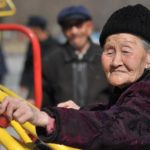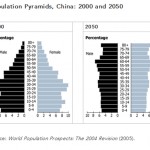Nursing home market (2/2)
The elderly population in China is steadily growing and the demand for nursing home is increasing as well. What is the future and opportunities for the nursing home market in China?
Future and opportunities
In urban areas, the one-child policy will play an important role. The parents of the first one-child policy generation – suppose females giving birth to children from 1979-1980 at the average age of 24 (the average initial marriage age for females in 1980s is 22.8) – are about to enter their 60s in second half of 2010s. They used to be in the middle of the 4-2-1 model. The current half-relaxing one-child policy will hopefully transfer the model into a 4-2-3/2 alternative. However, this will not help improve the conditions of the elderly parents. The extra new-born babies will actually distract the first one-child policy generation and even create more demand for professional elderly care, both in private and public sectors. Also, this generation of parents will be relatively more open to new lifestyles compared to the last generation.
In rural areas, the one-child policy was not strictly enacted. However, due to the floating population emerging since the 1978 economic reform, rural areas did not get away with the aging population problem by simply escaping the one-child policy. Large numbers of young people in their 20s started to flow into the cities during the second phase of the economic reform. This generation’s parents, now over 70s, are almost all left by themselvesin the countryside , requiring large quantities of public nursing home services.
Possible model for nursing home market
Private investors have been active in the Chinese nursing home market for more than a decade but few have really succeeded. People, as many analysts and market researchers suggest, are still exploring a model that will work. Below are several possible models.
Taikang Life Insurance Corp, China’s fifth-largest insurer by premium value, is coming out with offerings for China’s wealthier seniors. In April, Taikang launched a new commercial pension with a base premium at RMB 2 million that enables insurants to not only receive their annual fund, but also live in a senior community which Taikang is building in suburban Beijing with no additional payments required. This is an innovative model. According to Cole Wright, managing director of Merrill Gardens, a US-based operator of retirement communities, the senior housing market will eventually be dominated by mainland insurance companies because they understand the market and are happy with lower profit margins but stable rental income.
Despite optimistic Western voices, natives still believe that Chinese elderly’s minds are not that easy to change. However, this actually suggests a new development direction for nursing homes in China – in-home nursing, for which Japan, who shares a similar culture with China, is a pioneer. Right now, the publicly-financed community-based nursing homes render the elderly the advantage of living close to home and family members. With private nursing homes sending caregivers to the elderly’s own homes, the shortage gap of community-based services can be filled. In this way, private nursing home and the government can work hand in hand to create a home- and community- based elderly system.
Meanwhile, the government can also work with NGOs to develop the large rural market.
For profit-seeking foreign and domestic investors, they should focus on the high-end market, either working with insurance companies, real estate companies or the tourism industry to develop the elderly care service into a luxury.
Written by A. Wang, for Daxue Consulting, marketing research China, contact us here.
Sources :
Sito, Peggy. Foreign Retirement Home Operators Eye China’s Ageing Population.
The Silver Great Leap Forward: China Elderly Care Industry, Avantage Ventures Newsletter, issue 19, March 2013.
United Nations Population Division, World Population Prospects: The 2004 Revision.
















